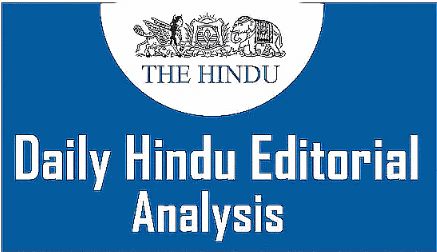The Hindu Editorial Analysis- 8th January 2025 | Current Affairs & Hindu Analysis: Daily, Weekly & Monthly - UPSC PDF Download

More flexibility, but also greater challenges
Why is it News?
The University Grants Commission (UGC) has introduced two significant reforms in Indian higher education: accelerated and extended degree programmes for undergraduate students. These programmes offer students the flexibility to complete their degrees either faster or over an extended period, moving away from the traditional rigid framework. This article explores the advantages, challenges, and implications of these new degree programmes for India’s higher education system.
Introduction to New Degree Programmes
The University Grants Commission (UGC) has introduced two transformative reforms in Indian higher education: accelerated and extended degree programmes for undergraduate students.
These programmes provide students with the flexibility to complete their degrees faster or over an extended duration, deviating from the traditional rigid framework.
Advantages of the New Programmes
Enhanced Autonomy and Flexibility:
- Students can customise their academic journey based on individual needs, aligning with the multidisciplinary approach of the National Education Policy (NEP) 2020.
- The reforms aim to produce graduates proficient in their fields while equipped with soft and creative skills, fostering innovation.
Career and Skill Benefits:
- The accelerated programme allows students to enter the workforce earlier, gain professional experience, and save on tuition fees.
- The extended programme enables exploration of diverse subjects, internships, research, skill development, and personal pursuits alongside academics.
Global Alignment and Mobility:
- These programmes align with international education standards, enhancing mobility for Indian students domestically and globally.
- The introduction of a flexible credit system allows students to progress at their own pace, tailoring education to career goals.
Challenges of the New Structure
Depth and Rigour Concerns:
- Accelerated programmes may lead to superficial learning due to compressed teaching schedules, compromising educational quality.
- Extended programmes might reduce academic urgency, with some students taking unnecessarily long to complete their degrees.
Impact on Technical Education:
- Engineering programmes, requiring in-depth theoretical and practical learning, may face challenges in maintaining rigour under accelerated formats.
- Reduced time could hinder hands-on experiences such as lab work, internships, and problem-solving exercises critical for technical competence.
- Extended programmes could increase financial burdens on students, deterring those with limited economic resources.
Practical Challenges in Implementation
Institutional and Administrative Overhaul:
- Substantial restructuring of curricula, teaching methods, and administrative systems is required, posing difficulties for resource-constrained universities.
- Effective systems for tracking student progress, credit transfers, and evaluation need to be developed.
Equity Concerns:
- Students from underprivileged backgrounds may struggle without adequate guidance and support, potentially increasing dropout rates.
Digital Divide:
- Increased reliance on digital education could exacerbate inequities among students lacking access to digital infrastructure.
Faculty Training:
- Teachers must adapt to new pedagogical models through professional development to support flexible, interdisciplinary learning.
Way Forward
- To overcome these challenges, strategic planning, adequate investment, and timely recruitment of faculty and staff are essential.
- Inclusivity and robust administrative frameworks are critical to ensuring equity and accessibility for all students.
- If implemented effectively, these reforms could create a dynamic higher education system aligned with market needs, contributing to India’s vision of Viksit Bharat by 2047.
|
39 videos|4385 docs|928 tests
|
FAQs on The Hindu Editorial Analysis- 8th January 2025 - Current Affairs & Hindu Analysis: Daily, Weekly & Monthly - UPSC
| 1. What are the potential benefits of increased flexibility in various sectors? |  |
| 2. What challenges might arise from the implementation of flexible systems? |  |
| 3. How can organizations effectively manage the trade-offs between flexibility and structure? |  |
| 4. In what ways can technology support increased flexibility in the workplace? |  |
| 5. What role does leadership play in navigating the challenges of increased flexibility? |  |
|
39 videos|4385 docs|928 tests
|


















